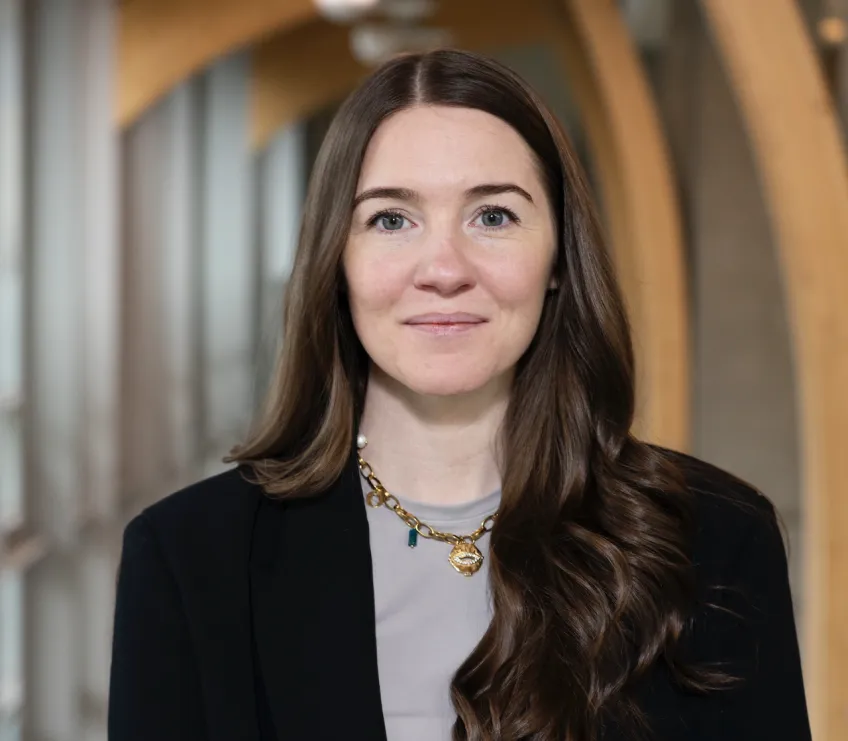Cecilia Jaques
Cecilia Jaques works as the Engagement Manager at Accelerating Community Energy Transformation, an interdisciplinary research program led by the University of Victoria, Canada. "I am motivated by the belief that climate action becomes real through relationships. Communities, governments, researchers and residents all shape the transition, and strong relationships help ensure solutions take root."
She graduated in 2018, as part of batch 20.
What are you working on right now?
I’m currently the Engagement Manager at Accelerating Community Energy Transformation, an interdisciplinary research program led by the University of Victoria. We’re delivering a new model of research that centers communities, ensuring that academic work is guided by local priorities and supports real-world climate and energy transitions.
My work focuses on building partnerships that advance community-led energy projects in British Columbia, across Canada and internationally. I bring together local governments, Indigenous nations, researchers, NGOs, and multiple levels of government to collaborate on projects and influence policy. A key part of my role is translating between research, policy, and on-the-ground practice so that academic insights genuinely support the people driving climate action in their communities.
Alongside this, I also participate in governance for non-profits I care about. I strongly believe in the mandates of both the Community Energy Association and the Youth Climate Corps and as a Board member, I support them through strategic decision-making, securing funding, and building partnerships.
Over the years, I've also worked directly with elected officials, policy makers, teachers, youth, community leaders, and researchers — helping connect ideas, resources, and action in meaningful ways.
How have you benefited from the education at LUMES?
LUMES shaped both my way of thinking and my approach to work. The program taught me systems thinking, political ecology and critical theory, and these tools still inform my decisions today.
What I appreciate most is how LUMES prepared me to work across disciplines, cultures and worldviews. Climate and energy work is complex and relational, and the program helped me navigate that complexity with curiosity and humility.
It also taught me how to ask better questions. Understanding what actions lead to which social and environmental outcomes is not straightforward, and LUMES gave me the analytical grounding to probe beneath assumptions, examine power dynamics and think critically about consequences. That skill has been invaluable in my work today.
What motivates you in your daily work?
I am motivated by the belief that climate action becomes real through relationships. Communities, governments, researchers and residents all shape the transition, and strong relationships help ensure solutions take root.
I care about helping communities access the tools, partnerships and resources they need to pursue solutions that fit their context. It is incredibly meaningful to see a community move from an idea to a funded and achievable energy project.
I am also motivated by the people I work with. The climate and energy sector is full of dedicated and imaginative people, and being part of that collective effort keeps me going.
What do you see as the most important sustainability challenge today?
The most significant challenge is not technology. It is the social and institutional capacity required to implement solutions at the scale and pace needed. Polarization, misinformation, and a growing sense of distrust in institutions make it harder for communities to engage with climate action in a meaningful and constructive way.
I also see elitism as a barrier. Too often, climate policy and planning are shaped by a narrow set of voices, which can leave communities feeling talked at rather than listened to. When people do not see themselves reflected in decision making, it becomes easier for misinformation to take hold and for opposition to grow.
Addressing these dynamics is essential. We need approaches that build trust, broaden participation and make climate action feel relevant and accessible to everyone. Strong relationships, transparent communication and genuine power-sharing are just as important as technical innovation.
To me, the central challenge is creating a social environment where people feel informed, included and confident participating in the transition. Without that foundation, even the best climate solutions struggle to take root.
What advice would you give to students in sustainability?
One piece of advice I’ve found especially useful is to say yes and figure out the “how” later. Opportunities in sustainability rarely come perfectly packaged, and the people, skills, and projects you encounter along the way will shape how you succeed.
I would also encourage students to develop a skill set for systems change. This means going beyond technical expertise to learn how to work across disciplines, engage with lots of different types of people, and learn translate complex ideas into accessible language. Sustainability challenges are inherently complex and relational, so being comfortable with uncertainty and asking the right questions is as important as having the right answers.
